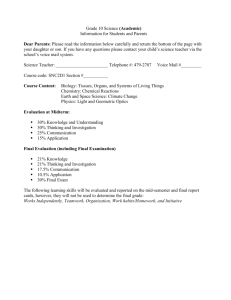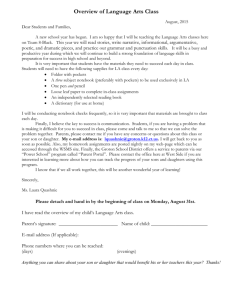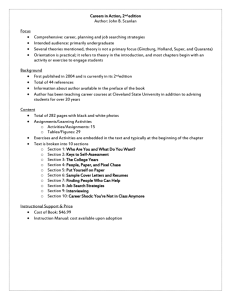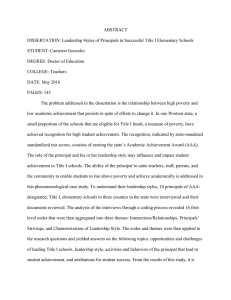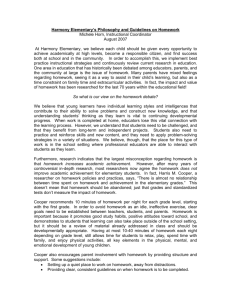Homework Help - National Association of Elementary School
advertisement
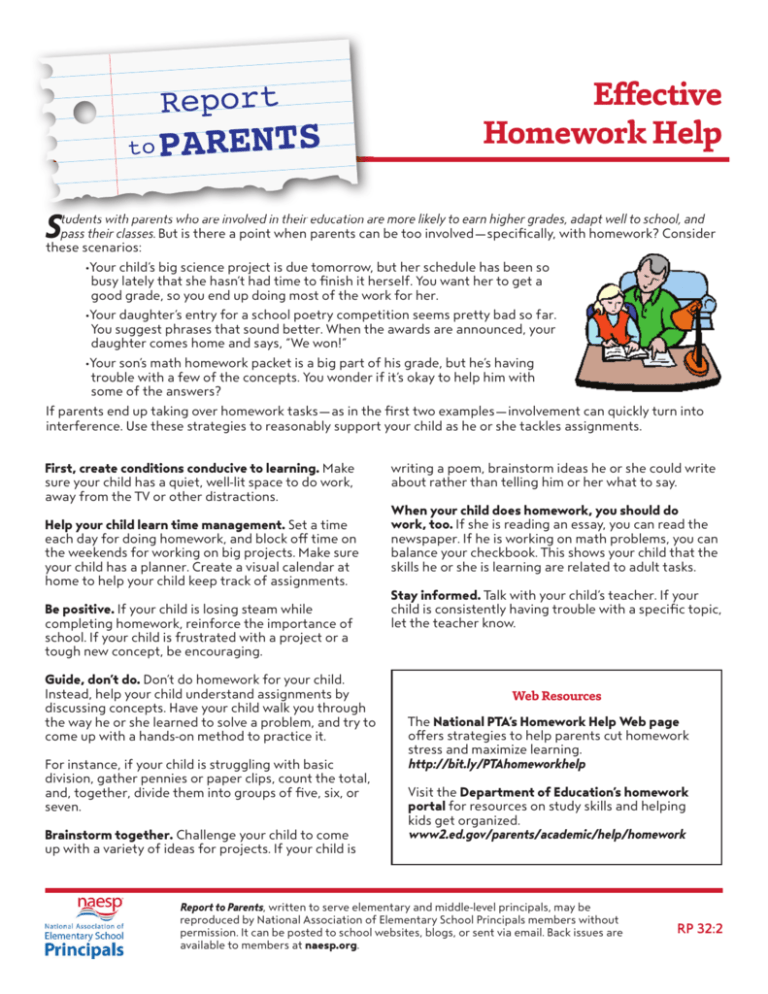
Report to PARENTS Effective Homework Help S tudents with parents who are involved in their education are more likely to earn higher grades, adapt well to school, and pass their classes. But is there a point when parents can be too involved—specifically, with homework? Consider these scenarios: •Your child’s big science project is due tomorrow, but her schedule has been so busy lately that she hasn’t had time to finish it herself. You want her to get a good grade, so you end up doing most of the work for her. •Your daughter’s entry for a school poetry competition seems pretty bad so far. You suggest phrases that sound better. When the awards are announced, your daughter comes home and says, “We won!” •Your son’s math homework packet is a big part of his grade, but he’s having trouble with a few of the concepts. You wonder if it’s okay to help him with some of the answers? If parents end up taking over homework tasks—as in the first two examples—involvement can quickly turn into interference. Use these strategies to reasonably support your child as he or she tackles assignments. First, create conditions conducive to learning. Make sure your child has a quiet, well-lit space to do work, away from the TV or other distractions. Help your child learn time management. Set a time each day for doing homework, and block off time on the weekends for working on big projects. Make sure your child has a planner. Create a visual calendar at home to help your child keep track of assignments. Be positive. If your child is losing steam while completing homework, reinforce the importance of school. If your child is frustrated with a project or a tough new concept, be encouraging. Guide, don’t do. Don’t do homework for your child. Instead, help your child understand assignments by discussing concepts. Have your child walk you through the way he or she learned to solve a problem, and try to come up with a hands-on method to practice it. For instance, if your child is struggling with basic division, gather pennies or paper clips, count the total, and, together, divide them into groups of five, six, or seven. Brainstorm together. Challenge your child to come up with a variety of ideas for projects. If your child is writing a poem, brainstorm ideas he or she could write about rather than telling him or her what to say. When your child does homework, you should do work, too. If she is reading an essay, you can read the newspaper. If he is working on math problems, you can balance your checkbook. This shows your child that the skills he or she is learning are related to adult tasks. Stay informed. Talk with your child’s teacher. If your child is consistently having trouble with a specific topic, let the teacher know. Web Resources The National PTA’s Homework Help Web page offers strategies to help parents cut homework stress and maximize learning. http://bit.ly/PTAhomeworkhelp Visit the Department of Education’s homework portal for resources on study skills and helping kids get organized. www2.ed.gov/parents/academic/help/homework Report to Parents, written to serve elementary and middle-level principals, may be reproduced by National Association of Elementary School Principals members without permission. It can be posted to school websites, blogs, or sent via email. Back issues are available to members at naesp.org. RP 32:2

